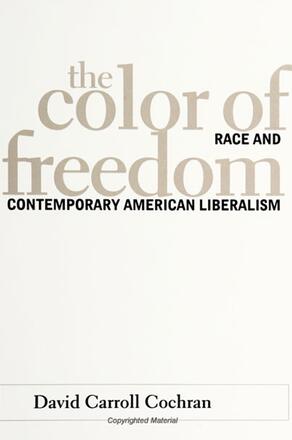
The Color of Freedom
Race and Contemporary American Liberalism
Alternative formats available from:
Offers a fresh, distinctive, and compelling analysis of the United States's continuing dilemma of race.
Description
Using liberal political theory to explore the politics of race in the United States, The Color of Freedom offers a fresh, distinctive, and compelling analysis of the country's continuing dilemma of race. Cochran develops an argument about how contemporary liberalism understands race, what is inadequate about this understanding, and how it can develop a better one. Sitting at the intersection of theory and practice, this book offers an impressive example of how the two must inform each other, especially when it comes to opening up new ways of thinking about old and frustrating problems like that of race in American life.
David Carroll Cochran is Associate Professor of Politics at Loras College.
Reviews
"As an African American philosopher whose work is focused on racial matters, including reconsidering the viability of liberalism as a political philosophy for an ethnoracially diverse American democratic republic, I especially like Cochran's timely, thoughtful, insightful approach to autonomy as the key to (re)conceptualizing a form of liberalism that is respectful of ethnoracial cultural groups. Also noteworthy is Cochran's choosing to set his theorizing on a level much closer to practical concerns—the unfulfilled promises of liberal democratic life for African Americans, an ethnically complex racial group the cultural autonomy of which needs greater recognition and support—rather than attempting to produce an unimpeachable ideal theory." — Lucius Outlaw Jr., Boston College
"The author attempts to find a solution for the persistence of white supremacy and racial domination in our liberal society without discarding the core liberal values. In this regard this is a unique perspective because either the black victims of liberalism call for rejection of its presuppositions or white advocates of liberalism attribute black failure to their pathological behavior patterns. I believe this work is the first attempt to expand the liberal paradigm to include racial justice as a core principle. For the author to engage the debate about racial justice using the liberal paradigm is a significant intellectual advancement in our society. I find the author's brilliance in attempting to graft on to the core liberal paradigm a notion of racial justice which challenges the supremacy of individualism as the central tenet of liberalism." — Cobie Kwasi Harris, San Jose State University